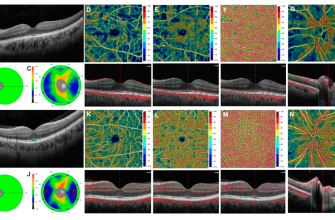Combining Cialis and Viagra is generally not recommended. Simultaneous use significantly increases the risk of dangerous side effects, primarily related to a dramatic drop in blood pressure. This can manifest as dizziness, fainting, or even more severe cardiovascular complications.
If you’re considering using both medications, consult your doctor immediately. They can assess your individual health profile and determine if any exceptional circumstances might warrant a controlled, medically supervised trial. This is crucial, as the potential dangers far outweigh any perceived benefits of combining these drugs.
Your physician can explore alternative treatment options that address your specific needs without the inherent risks of combining Cialis and Viagra. They might suggest adjustments to dosage, alternative medications, or lifestyle changes to help manage erectile dysfunction. Remember, prioritizing your safety is paramount.
Never attempt to self-medicate or adjust dosages without explicit medical guidance. The potential consequences of ignoring professional advice are serious. Prioritize a thorough medical evaluation to ensure you receive the safest and most effective treatment.
- Cialis and Viagra Combination Usage: A Detailed Overview
- Potential Benefits and Risks of Combining Cialis and Viagra
- Understanding the Pharmacological Interactions Between Cialis and Viagra
- Increased Risk of Side Effects
- Dosage Considerations
- Alternative Approaches
- Alternative Treatment Options for Erectile Dysfunction
- Surgical Options
- Alternative Therapies
- The Importance of Consulting a Healthcare Professional
- Potential Drug Interactions
- Personalized Dosage and Monitoring
- Addressing Underlying Health Issues
- Managing Side Effects
- Alternative Treatment Options
- Remember: Prioritizing your health and safety requires professional medical guidance.
Cialis and Viagra Combination Usage: A Detailed Overview
Combining Cialis and Viagra is generally not recommended. This practice carries significant risks and offers no proven benefits exceeding those of using either drug alone.
Both medications treat erectile dysfunction (ED) by increasing blood flow to the penis. Taking them together dramatically increases the risk of dangerously low blood pressure, particularly a sudden drop, leading to dizziness, fainting, or even heart attack. This risk is amplified by pre-existing heart conditions or the use of other medications affecting blood pressure.
The potential side effects of this combination include severe headaches, visual disturbances, including blurred vision and temporary color blindness, prolonged erections (priapism), and nasal congestion. The severity and likelihood of these side effects increase with the combined dosage.
If you experience ED, consult a doctor. They can assess your overall health and determine the most appropriate treatment. Your physician can help you choose the best ED medication for your specific situation, considering your medical history and any other medications you are taking. They may recommend lifestyle changes, such as diet and exercise, or suggest alternative treatments in addition to or instead of medication.
Always follow your doctor’s instructions precisely when taking any medication. Never self-medicate or adjust dosages without professional guidance. Misusing ED medications can have serious health consequences.
Remember, prioritizing your health and seeking professional medical advice is paramount. Do not experiment with medication combinations without the express approval of a qualified healthcare provider.
Potential Benefits and Risks of Combining Cialis and Viagra
Combining Cialis and Viagra is strongly discouraged. There’s no proven benefit to doing so, and significant risks outweigh any potential advantages.
While both drugs treat erectile dysfunction (ED), they work differently and have different durations of action. Cialis is a longer-acting drug, while Viagra’s effects are shorter. Taking both simultaneously increases the risk of side effects without demonstrably improving erectile function.
- Increased Risk of Side Effects: The combined effect can amplify side effects like headaches, flushing, nasal congestion, and muscle aches. More serious side effects, including low blood pressure and vision problems, are also more likely.
- Potential for Drug Interactions: Both medications can interact with other drugs you might be taking, further increasing the risk of adverse reactions. This is particularly true for nitrates, which are used to treat heart conditions. Combining them with Cialis or Viagra can cause a dangerous drop in blood pressure.
- No Enhanced Efficacy: Studies haven’t shown that combining these medications leads to a greater improvement in erectile function than taking either drug alone. The increase in risk simply doesn’t justify the potential lack of added benefit.
Before considering any ED treatment, including Cialis or Viagra, consult your doctor. They can assess your health status, discuss potential risks and benefits, and recommend the safest and most effective approach based on your individual needs. Proper medical guidance is crucial for managing ED and ensuring your health and safety.
- Discuss your medical history: Inform your doctor about all medications you’re currently taking, including over-the-counter drugs and supplements.
- Undergo a physical exam: A complete evaluation will help identify any underlying health conditions that might be contributing to your ED.
- Explore alternative treatment options: Besides medication, lifestyle changes like exercise, weight management, and stress reduction can significantly improve ED.
Remember: Your health is paramount. Always prioritize safety and seek professional medical advice before making any decisions regarding your treatment.
Understanding the Pharmacological Interactions Between Cialis and Viagra
Combining Cialis (tadalafil) and Viagra (sildenafil) isn’t recommended. Both drugs increase blood flow to the penis by inhibiting PDE5, an enzyme that breaks down cGMP, a crucial molecule for penile erection. Taking them together significantly raises the risk of side effects because their effects are additive.
Increased Risk of Side Effects
The potential side effects increase proportionally with the combined dose. Expect a higher likelihood of headaches, flushing, nasal congestion, visual disturbances, and back pain. More serious, though less common, side effects like hypotension (low blood pressure) and priapism (a prolonged, painful erection) also become more probable. Individuals with underlying cardiovascular conditions are particularly vulnerable to the risk of hypotension.
Dosage Considerations
There’s no established safe combination dosage. Medical professionals generally advise against concurrent use. The potential for unpredictable and dangerous interactions outweighs any perceived benefit. Always consult a doctor before mixing medications.
Alternative Approaches
If erectile dysfunction persists despite treatment with one medication, consider discussing alternative treatment options with your physician, such as adjusting the dosage of your current medication or exploring other therapies. They can assess your individual health profile and recommend the safest and most effective approach.
Alternative Treatment Options for Erectile Dysfunction
Consider lifestyle changes. Regular exercise, a balanced diet, and weight management significantly improve erectile function. Aim for at least 150 minutes of moderate-intensity aerobic activity per week.
Explore vacuum erection devices. These non-invasive devices help achieve and maintain an erection by drawing blood into the penis. Consult your doctor for proper usage and potential side effects.
Penile injections may be an option. These injections deliver medications directly into the penis, stimulating blood flow and causing an erection. This method requires medical supervision and training.
Surgical Options
Penile implants are a surgical solution providing a permanent, rigid erection. This is generally considered a last resort after other treatments have failed. Discuss the risks and benefits thoroughly with your surgeon.
Explore psychological counseling. Anxiety, stress, and relationship issues can contribute to ED. Therapy can help address these underlying factors and improve sexual function.
Hormone replacement therapy might be suitable if low testosterone levels are identified as a contributing factor to erectile dysfunction. Your doctor will conduct tests to determine if this treatment is appropriate for you.
Alternative Therapies
Some men find relief with acupuncture or other complementary therapies. However, scientific evidence supporting their effectiveness for ED is limited. Always discuss these options with your healthcare provider.
The Importance of Consulting a Healthcare Professional
Always discuss combining Cialis and Viagra with your doctor. This isn’t a decision you should make alone. Your physician can assess your overall health, including pre-existing conditions and current medications, to determine if this combination is safe and appropriate for you.
Potential Drug Interactions
Many medications interact with Cialis and Viagra. Your doctor can identify potential risks and help you manage them. For instance, nitrates, often prescribed for heart conditions, can cause a dangerous drop in blood pressure when combined with these drugs. Your doctor will review your medication history to prevent such interactions.
Personalized Dosage and Monitoring
The appropriate dosage of Cialis and Viagra, or whether a combination is suitable at all, depends entirely on individual health factors. Your doctor will tailor recommendations based on your specific needs and will monitor your progress and response to treatment. Regular checkups are key to ensuring your safety and efficacy.
Addressing Underlying Health Issues
Erectile dysfunction can be a symptom of an underlying health problem. A doctor can perform necessary tests to diagnose the root cause and recommend treatment accordingly. Treating the underlying condition might improve erectile function without relying on medication.
Managing Side Effects
Cialis and Viagra can cause side effects, some of which can be severe. Your doctor can help manage potential side effects, provide guidance on minimizing risks, and intervene if any serious problems arise. Open communication with your doctor is crucial.
Alternative Treatment Options
If combining Cialis and Viagra proves unsuitable or unsafe, your doctor can discuss alternative treatment options for erectile dysfunction. These alternatives might include lifestyle changes, other medications, or even surgical procedures.





